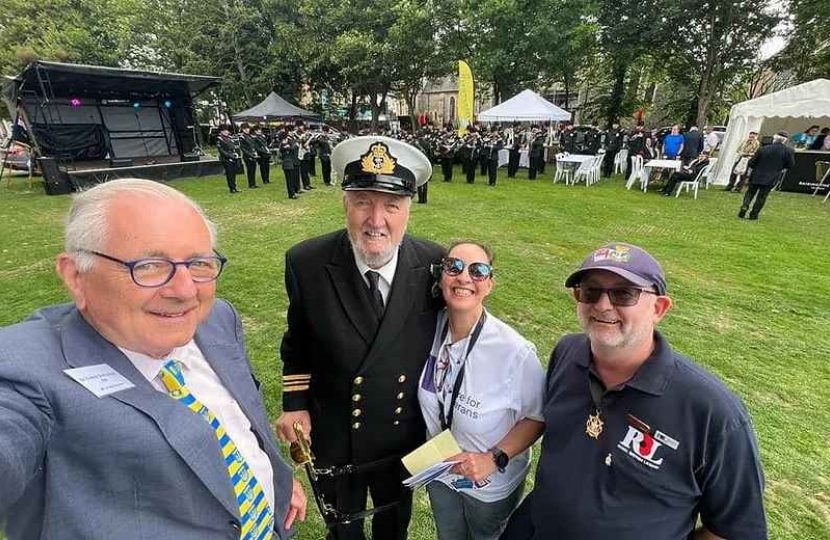
Congratulations and thanks to the Worthing and district veterans for organising the Saturday commemorations on the Steyne. The Rifles band, the wartime ladies’ trio and all the stalls made it a memorable event.
War is ghastly. Civil war is worst. Russia went over the boundary in February 2022; it came close to internal conflict in past days. The activity of the brutal Wagner militia was such a contrast to my regular constituency day.
It had included a meeting of residential leaseholders with a good responsible managing agent. I thank Goring library for the desk where I discussed local and national problems with constituents. They kindly act as my eyes and ears, keeping me aware of problems and often of solutions. I am always pleased to meet or to speak by telephone.
Earlier, with Labour’s Dame Diana Johnson, I had led the Commons debate on Infected blood used in treatment of people with haemophilia and as whole blood in transfusion. I have stayed with this tragic scandal for over 30 years. One tribute I treasure was from Lord Sentamu when he was archbishop of York. Stuck for something to say on an occasion at Lambeth palace, he spotted me and described me with the words Veni, Vidi, Velcro: he kindly suggested that I arrive, observe and do not let go of important causes. Were those words to be on my possible memorial. I might smile posthumously.
When taking visitors around the Palace of Westminster, I point to the Kindertransport notice, recalling the lifesaving arrival in 1938 of 10,000 young Jewish children. Then I ask which would have been the right year to confront Adolf Hitler by force? Could it have been before 1939? Democracy reduces the incidence of war. It allows change of government by consent, that is by agreement of the electorate and of the leaders.
On Wednesday the independent Boundary Commission for England will have confirmed constituencies for the next general election. Subsequent revisions will follow on a fixed regular timetable. No more fiddling by government or opposition parties. This is a step forward.
Recent discussion about voters here needing photographic identification has sometimes missed the point. Another independent body, the respected Electoral Commission recommended about eight years ago that ID should be needed for people voting in person. Many involved in active politics know of voters being told at the polling station that their voting paper had already been issued, presumably by mistake or more likely to a person who gave the name of someone they did not expect to turn up.
I feel strongly that younger voters should be able to show valid acceptable identification as easily as older people with photographic travel passes.
The greater problem is the incompleteness and the occasional inaccuracy of the current register of eligible voters. We can do better.
Another issue of concern is how successive governments have been handling the welcome proposal in 2015 for a national holocaust memorial and a learning centre. First, they declared it should be open by 2020; now, eight years have passed with nothing created. Then, they said most of the money should be spent on education; so far nothing on education, with £17 million gone without anything tangible.
The plan was to give testimony to what holocaust victims had experienced when survivors were no longer alive to tell succeeding generations; now we are told it is vital to open the memorial before the last survivors die. Government admit that their present plan would not be complete within four years if everything went forward without difficulty.
I shall be explaining the best approach is to commission a better memorial that can be in place within two years, built at reasonable cost, without continuing controversy. Do the right things in the right way.



